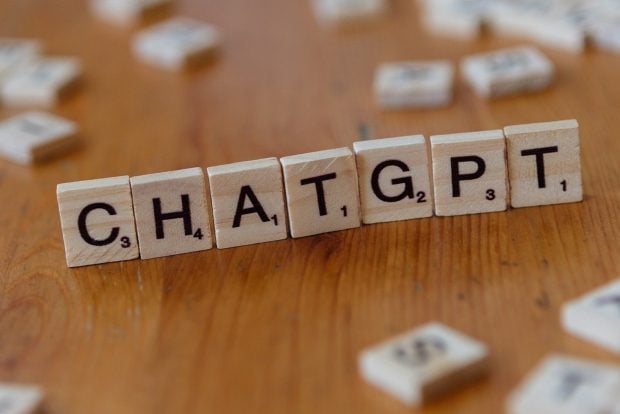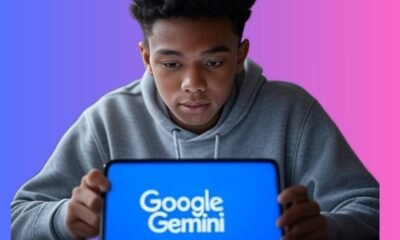Education
Google’s Gemini for education expands access across 1,000 US colleges: Integrating AI into academic and administrative workflows

Google’s Gemini for Education initiative is expanding the use of artificial intelligence across more than 1,000 US colleges and universities, influencing how students and educators interact with technology, learn, and prepare for future careers. This report examines the initiative’s scope, applications, and potential implications for higher education.
Gemini for education: AI in the classroom
Gemini for Education is a free platform designed for accredited higher education institutions. It emphasises data privacy and security, meeting standards necessary for academic environments. Over 10 million students have access to the platform, which aims to introduce AI tools as part of academic learning and professional skill development.The platform focuses on guided learning, where AI assists students in clarifying concepts and structuring their thinking, rather than providing direct solutions. This approach aligns with broader educational goals of fostering critical thinking and active engagement with course material.
University applications of Gemini
Several universities have adopted Gemini to explore AI’s role in teaching, research, and campus operations:
San Diego State University uses Gemini as a “virtual teaching assistant” to answer student queries and provide learning resources in large classes.- University of Hawaii offers Google AI Essentials, a free training program to develop AI literacy among students and faculty.
- Indiana University integrates Gemini into a hands-on AI initiative, allowing students to create AI-powered tools for practical applications.
- University of Maryland applies AI to analyse large financial datasets, supporting research in credit risk assessment.
- John Jay College of Criminal Justice uses predictive AI models to identify students at risk of not graduating, enabling targeted interventions.
- Arizona State University leverages AI to improve research support and enrollment forecasting, enhancing operational decision-making.
Supporting AI literacy and career preparedness
Google has also introduced the AI for Education Accelerator, offering free training and career certificates to students. The program aims to build AI literacy and prepare graduates for careers where AI is increasingly relevant.
Implications for higher education
The Gemini initiative reflects a broader trend of integrating AI into higher education. By embedding AI tools in learning, research, and administrative processes, institutions may see more personalized learning experiences, improved student outcomes, and greater operational efficiency. At the same time, the initiative raises questions about the ethical and responsible use of AI in academic settings.Overall, Gemini for Education demonstrates how AI can be incorporated into colleges and universities to support learning and research while preparing students for an evolving job market. Its continued adoption will likely shape the role of AI in U.S. higher education in the coming years.
Education
$53B Market Growth by 2030 Amid Benefits and Risks

In the rapidly evolving realm of education technology, artificial intelligence is reshaping how students absorb and retain knowledge, prompting educators and researchers to scrutinize its long-term effects. Recent studies highlight both transformative potential and subtle pitfalls, as AI tools like chatbots and personalized learning platforms become classroom staples. For instance, a Boise State University professor, Jenni Stone, recently explored these dynamics in an article for The Conversation, emphasizing how AI might inadvertently hinder deep learning by providing quick answers that bypass critical thinking.
Stone’s analysis draws on empirical data showing that while AI excels at delivering customized content, it can reduce students’ engagement with complex problem-solving. Her work, published amid a surge of 2025 research, aligns with findings from a Microsoft Education Blog report, which surveyed educators and found that 68% believe AI enhances teaching efficiency but warns of overreliance eroding foundational skills.
Personalized Learning’s Double-Edged Sword
This tension is evident in global trends, where AI-driven adaptive systems tailor lessons to individual paces, potentially boosting outcomes for diverse learners. A study in the journal Education Sciences, conducted at Romania’s National University of Science and Technology POLITEHNICA Bucharest, polled 85 students and revealed that 72% reported improved academic performance through AI tools, yet 45% expressed concerns about diminished critical analysis abilities. The research underscores AI’s role in democratizing education, particularly in underserved regions, by offering real-time feedback that human teachers might not scale.
However, the Bucharest study also flags ethical dilemmas, such as data privacy and algorithmic biases that could exacerbate inequalities. Echoing this, a World Economic Forum piece from 2024, updated with 2025 insights, argues that AI in “Education 4.0” promotes equity by preparing students for AI-integrated workplaces, but only if implementations prioritize human oversight.
Market Growth and Institutional Shifts
The economic impetus is undeniable, with market projections painting a bullish picture. According to a Maximize Market Research report featured on OpenPR, the global AI in education sector is poised to balloon from $4.17 billion in 2023 to $53.02 billion by 2030, driven by tools automating administrative tasks and fostering interactive learning. This growth is fueled by investments in smart tutoring systems, as noted in Netguru’s blog on AI’s educational impact, which details how such technologies are streamlining everything from grading to curriculum design.
Yet, institutional adoption varies widely. A UNESCO report from early 2025, discussed during their Digital Learning Week, convened global leaders to address AI’s inclusive potential, stressing the need for policies that ensure human-centered futures. The report warns that without ethical frameworks, AI could widen digital divides, a sentiment mirrored in student perspectives from EDUCAUSE Review, where firsthand accounts with tools like ChatGPT reveal enhanced creativity but limited depth in understanding.
Educators’ Evolving Roles
Teachers are at the forefront of this shift, transitioning from lecturers to facilitators in AI-augmented environments. Insights from THE Journal’s 2025 predictions highlight experts forecasting AI’s dominance in personalized tutoring, potentially reducing teacher workloads by 30% while demanding new skills in AI literacy. Posts on X, formerly Twitter, reflect public sentiment, with users like tech influencers noting AI’s inevitability in education, comparing it to calculators’ integration and urging curricula to evolve rather than resist.
A ScienceDirect systematic review from 2024, extending into 2025 analyses, synthesizes over 100 studies showing AI’s prowess in tracking progress but cautions against replacing human interaction. This is particularly relevant in higher education, where AI aids in identifying at-risk students early, as per the U.S. Department of Education’s AI report.
Challenges in Skill Development
Deeper concerns emerge around cognitive impacts. Stone’s Conversation piece delves into experiments where AI-assisted groups showed short-term gains in creativity but struggled with original ideation without prompts, suggesting a “crutch effect.” Complementing this, a GPA Calculate Tools analysis on generative AI usage indicates that in 2025, 75% of students employ these tools, correlating with higher grades yet lower retention of core concepts.
International examples amplify these findings. China’s nationwide integration of AI into curricula, as reported on X by figures like Mario Nawfal, aims to build a tech-savvy workforce, embedding AI from primary levels to universities. However, critics argue this could prioritize rote efficiency over innovative thinking.
Future Directions and Policy Imperatives
Looking ahead, balancing AI’s benefits with safeguards is crucial. The UNESCO-convened discussions in 2025 advocate for global standards, emphasizing teacher training and equitable access. A student’s viewpoint in EDUCAUSE Review questions if systems can keep pace, proposing AI as a collaborator rather than a replacement.
Ultimately, as AI permeates education, ongoing research like that from Boise State and international bodies will guide its trajectory. By fostering thoughtful integration, stakeholders can harness AI to elevate learning without compromising the human elements that define true education.
Education
How much AI in schools? Educators wrangle with a quickly evolving tech question

How much should artificial intelligence be in classrooms?
As AI becomes more pervasive, getting included in many software apps without the possibility to remove it, educators across the region have different answers to questions about AI in schools.
Teachers have been using it to help develop lesson plans and quizzes, helping to save time in the work day. A presidential directive seeks to make teacher use of AI much more prevalent — President Donald Trump signed an executive order for more AI throughout K-12 education.
Students have been exploring it, using popular apps such as ChatGPT to help study for assignments — or even to just do the assignment. Some children are even turning to AI for companionship.
Springfield Public Schools prevents students from using most AI chatbots on school-issued devices and loops detection of student AI use in with many other tactics for focusing on teacher-student relationships. A Missouri State University educator in its College of Education said there is not a lot of AI-specific training for teachers available right now.
And a man who helped create a new private school in Springfield wants to see AI taught much more.
Rob Blevins, co-founder of Discovery School, has launched the National Institute for Artificial Intelligence in Education, a Springfield-based group that seeks to make the U.S. a global leader in K-12 AI education. The group has goals of advocating for AI educational learning standards, better training, more certification and developing bipartisan legislation for states.
The group already has initial support from U.S. Rep. Eric Burlison, Blevins said.
“There are no learning standards for AI,” Blevins said. “It’s here, people are using it and it’s not going to go anywhere. The best thing to do is get in front of it, and figure out how to handle it as responsibly as possible.”
AI: Vast applications for new technology
AI isn’t limited to one type of application.
Well-known chat apps such as ChatGPT and DeepSeek allow users to ask general questions and receive back lengthy answers.
Popular software apps from companies such as Microsoft and Adobe now offer AI functions to summarize large documents or help write rough drafts.
On our phones, Android’s Gemini and Apple’s Apple Intelligence fuel on-board, in-app AI searches within schedules, contacts and other uses.
Even social networks such as Facebook and X (formerly known as Twitter) have their own AI apps.
In general, these AI apps go far beyond a search engine — they are capable of answering conversational questions by processing a colossal amount of information available on the internet. They can also create content: They can write rough drafts of papers or create images based on a user’s needs.
What AI has in powerful data processing, it lacks in discernment.
It has been criticized for incorporating data from racists and other political actors in its results. It has also been criticized for causing damage to the environment, as the computers responsible for crunching all that data require more and more power.
It has also been used to create fake images and bizarre stories not rooted in reality, blurring the line between truth and fiction. For instance, the same president who signed an executive order to increase AI training and data centers also blamed it for an image of someone throwing something out of a White House window.
New nonprofit would like to see more AI in schools
Blevins hopes his group can emphasize the key part of using AI: remembering that we are the humans in charge of discerning and directing how results are used.
It’s something that Blevins remembers every time he uses such an app, he said.
“Being able to be the human who determines what’s appropriate, not the machine,” Blevins said. “I always try to tell it that, ‘Hey, I’m the human, my job is to figure this part out. You’re supposed to give me data.’”
His plans for his nonprofit include several goals:
• Creating a school recognition and certification program to help embed AI across curriculum, training and other student experiences.
• Hosting a debate tournament, where students score points from how they prompt, defend and navigate AI-generated arguments around real-world issues.
• Organizing a show that combines a science fair with a career expo.
SPS: Teachers’ toolbox for working with students can handle AI cheating concerns
Springfield Public Schools handles AI like any other technology used by students and teachers: carefully, with an eye on teaching students how to make effective use of such tools.

“It’s technology that has been around for a long time,” said Bruce Douglas, chief information officer for SPS. “Our approach to technology is about just preparing students for it, knowing that there is going to be new pieces for it. There is going to be change, and that’s why we focus on critical thinking skills and how we prepare students.”
Douglas said he remembers learning about AI development when he was a student at Missouri State University more than 25 years ago. Some of his professors were doing research around the neural networks and large language models that are critical components for how AI works.
Currently in SPS, ChatGPT and many other AI tools are generally blocked from student Chromebooks and other devices, although a teacher can make a case for using an AI app for a certain type of lesson. Any evaluation for teaching students about AI is looped in with the district’s normal curriculum review process.
Like other individuals and businesses that use technology, SPS employees see the software they use incorporating more AI features prominently. The district tries to review them as they surface and focuses on what helps teachers teach students.
“The use of digital resources, whether they may or may not incorporate AI, is always about the learning goals for the students,” said Thomas Maerke, a technology integration coordinator for SPS. “The learning goals for our students are going to be what drives us forward, and it’s the actions of our dedicated and hardworking teachers that make that happen.”
But AI is already in the hands of students. Social networks such as Instagram and TikTok are filled with stories of teachers who spot how students use AI to try to get around assignments.
Douglas said that the district offers no specific training about AI use among students. Instead, it emphasizes training teachers on how to be better teachers, because the toolbox teachers use to understand the work students produce can easily spot AI assistance.
That includes simple things, such as a student’s sudden jump in quality between assignments, Douglas said. It also includes more advanced tactics of ensuring academic integrity, from verifying original sources to double-checking data.
The district’s use of virtual learning and experiences among teachers at Launch Virtual Academy have helped give SPS more experience in such areas, Douglas said.
“We emphasize the relationship between the teacher and the students so much that they know what a student is producing, and we have seen that play out in a lot of different ways,” Douglas said. “It all starts with the teacher’s understanding of the students’ work, having those conversations and getting to know students.”
The district’s curriculum review process is annual. A committee of teachers and other educators evaluate a wide variety of lessons and programs, and their first priority is to check alignment with Missouri Learning Standards — the list of core curriculum for which public schools are held accountable and reviewed by the state.
Because of their need to follow state laws in order to obtain state funding, Blevins knows that public schools will be slow to take on some of the measures he supports. He sees more opportunity with private schools. He said he has been speaking with both public and private schools across the country
Next five years for AI in schools: More tinkering as an educational tool
The pervasiveness of AI, with ubiquitous features and options popping up in popular software and apps, means that teachers and students are still exploring what it can do.
Minor Baker, director of Missouri State University’s school of teaching, learning and developmental science in the College of Education, said that he sees students testing the waters. In his position, he watches educational trends across the country, but he also observes his school-aged children.
“I think right now we are definitely in the curious application mode,” Baker said. “I think teachers are trying to figure out what parts of AI can be used for their jobs.”
AI’s time-saving promises are especially attractive to teachers who are routinely asked to add daily responsibilities to their workload. Baker said that AI can assist teachers with time-intensive tasks, such as:
• Email communications with parents, such as weekly newsletters or notes about upcoming lessons. Baker said teachers could anguish over proper grammar or addressing potential questions that could arise.
• Developing lesson plans. A teacher could spend significant time locating the perfect book for a topic or a perfect experiment for a lesson. Teachers can save hours by getting AI to pore over a vast library of options.
“Teachers spend a lot of time just locating resources such as what would be a good book to go with a particular topic,” Baker said. “Now teachers can say, ‘This is what I’m teaching, this is my learning objective, I need resources that may be readily available.’”
He agrees with SPS’ approach to training teachers on spotting AI use in students, mainly because he does not see an abundance of education about that subject.
But education will transform and adapt, Baker said. He remembers Texas Instruments’ TI-82 programmable graphing calculator and how powerful it was on its release in 1993.
“I think it’s exceptionally realistic that we will begin to tinker around the edges of using AI as a learning tool, a learning partner,” Baker said. “The calculator did not necessarily change mathematics. Certainly, AI is more expansive than the TI-82. But I also think that a lot of what we do in school can be enhanced by the use of AI when it comes to developing knowledge.”
Baker said that AI isn’t inherently bad, per se. Its ability to provide answers to questions complements a child’s inherent curiosity.
He compared it to a set of encyclopedias that his grandparents offered. He would pick a letter, such as J, and see what was inside that volume. Kids’ version of that today, he said, is they can land on a random thought about something and go down a rabbit hole to see what more they can learn.
“I think that the likelihood is that over the next five years, we’re going to find that AI is integrated into lots of what we do, and we’ll be using it as a learning partner in schools without actually changing how important teachers really are,” Baker said. “I think teachers run those relationships, and what they do personally will remain the foundation of what schools are.”
As advocates such as Blevins work for more AI, and as the White House develops its AI Action Plan, Douglas said that any plan or curriculum for beefing up AI education cannot leave teachers behind.
“One of our core beliefs is that it’s really the teacher who is going to make the impact in the student’s education,” Douglas said. “That’s the first box I always look at, how we are making sure we have great teachers in our classrooms, and then how do we support them from there? … If everything is grounded in strong curriculum led by qualified educators, those two foundational pillars then guide how tools are used to support student learning.”
There is a transformation coming, Blevins said. And he hopes that a regular education about AI will help students learn how to use it for the better.
“If we don’t teach kids how to use it responsibly, then they will learn to use it irresponsibly,” Blevins said. “AI is way more powerful than anything that we’ve experienced before. In some ways, it’s exciting, the things that are going to be possible now because of the innovations that will occur.”
Education
Greek government strikes deal with Open AI to use tools for education and start-ups

Photo: Pixabay
The government of Greece agreed a deal with US artificial intelligence firm OpenAI to make AI tools widely available for use in secondary education and small businesses.
The deal means Greek startups in areas such as healthcare, climate change and education will enjoy access to OpenAI’s technology and support for their projects. It also means Greece is expected to become the world’s first country to integrate a specialised version of the large language model ChatGPT, known as ChatGPT Edu.
Announced by OpenAI in May 2024, ChatGPT Edu is said to be able to “reason across text and vision and use advanced tools such as data analysis”, and includes advanced capabilities in interpretation, coding and mathematics, web browsing, and document summarisation.
Posting on LinkedIn, Greece’s digital policy & AI adviser to the prime minister of the Hellenic Republic, Vassilis Koutsoumpas, said that the deal would allow teachers and students across the country to “meaningfully integrate AI into classrooms, creating a digital learning environment where every child — regardless of economic or social background — can thrive”.
“Our vision is to build on this partnership and steadily continue transforming Greece into a more resilient, technologically confident hub,” Koutsoumpas said, adding:
“We need to make sure that every Greek citizen is benefiting from this tech dividend — the social and economic benefits of technology in their daily lives.”
https://www.linkedin.com/posts/activity-7369986165128630272-q2l4?utm_source=share&utm_medium=member_desktop&rcm=ACoAAARPXzwBcH1TcR2k-pCpajFg_i9U7o1luAU
OpenAI’s chief of global affairs officer, Chris Lehane, said at the announcement of the deal: “With millions of Greeks using ChatGPT on a regular basis, the country is once again showing its dedication to learning and ideas.”
Greece’s prime minister, Kyriakos Mitsotakis, also joined the announcement of the deal, along with Anthony S. Papadimitriou, president of the Onassis Foundation, a scholarship and prize programmes organisation.
Read more: Australia urged to set ‘rules of the game’ to harness the productivity potential of AI
Partnerships with government
In August earlier this year, OpenAI announced a similar partnership with the US government’s the General Services Administration (GSA), in which it made its leading frontier models available to federal employees for a year at a cost of just US$1.
OpenAI’s CEO Sam Altman said that the partnership served to deliver on US president Donald Trump’s AI Action Plan, adding that “one of the best ways to make sure AI works for everyone is to put it in the hands of the people serving the country”.
In the same month, Altman discussed the possibility of giving the UK premium access to Open AI. His and Peter Kyle, former state for science, innovation and technology and now secretary of state for business and trade, discussed giving UK residents access to the firm’s advanced product.
However, as was reported in UK newspaper The Guardian, the idea was never seriously considered due to an estimated cost £2bn (US$2.7bn).
Register now for Public Service Data.AI 18 September 2025 – London, UK
Brought to you by Global Government Forum and hosted by HM Government, Public Service Data.AI is the UK’s flagship annual event for civil servants working to unlock the power of data and artificial intelligence across government. Free to attend for all UK public servants, this event brings together digital leaders, policymakers, data specialists and service designers to explore how the effective use of data and AI can drive smarter, fairer, and more responsive public services.
From modernising digital infrastructure and fostering public trust to ensuring ethical AI procurement and improving data-sharing across departments, Public Service Data.AI 2025 will focus on the key enablers of successful digital transformation.
Find out more and register here
Ireland announces new national office for AI
On 8 September, the Irish government launched a new national office responsible for AI, known as the National Artificial Intelligence Office (NAIO).
The goal of the new unit is to position Ireland as a European leader in AI development. It is expected that a director general will be hired later this year and will act as the authority responsible for co-ordinating the EU AI Act.
Ireland’s enterprise minister, Peter Burke, said that the launch marked a “decisive step in Ireland’s digital future”, and that the office would ensure the country maintained its position “as a trusted hub for innovation and investment”.
“We all know the importance of investing in AI in a significant and cohesive way, and this office will officially lead on this, ensuring we continue to be a global leader in digital innovation and technology,” he said.
-

 Business2 weeks ago
Business2 weeks agoThe Guardian view on Trump and the Fed: independence is no substitute for accountability | Editorial
-
Tools & Platforms1 month ago
Building Trust in Military AI Starts with Opening the Black Box – War on the Rocks
-

 Ethics & Policy2 months ago
Ethics & Policy2 months agoSDAIA Supports Saudi Arabia’s Leadership in Shaping Global AI Ethics, Policy, and Research – وكالة الأنباء السعودية
-

 Events & Conferences4 months ago
Events & Conferences4 months agoJourney to 1000 models: Scaling Instagram’s recommendation system
-

 Jobs & Careers2 months ago
Jobs & Careers2 months agoMumbai-based Perplexity Alternative Has 60k+ Users Without Funding
-

 Podcasts & Talks2 months ago
Podcasts & Talks2 months agoHappy 4th of July! 🎆 Made with Veo 3 in Gemini
-

 Education2 months ago
Education2 months agoMacron says UK and France have duty to tackle illegal migration ‘with humanity, solidarity and firmness’ – UK politics live | Politics
-

 Education2 months ago
Education2 months agoVEX Robotics launches AI-powered classroom robotics system
-

 Funding & Business2 months ago
Funding & Business2 months agoKayak and Expedia race to build AI travel agents that turn social posts into itineraries
-

 Podcasts & Talks2 months ago
Podcasts & Talks2 months agoOpenAI 🤝 @teamganassi



















